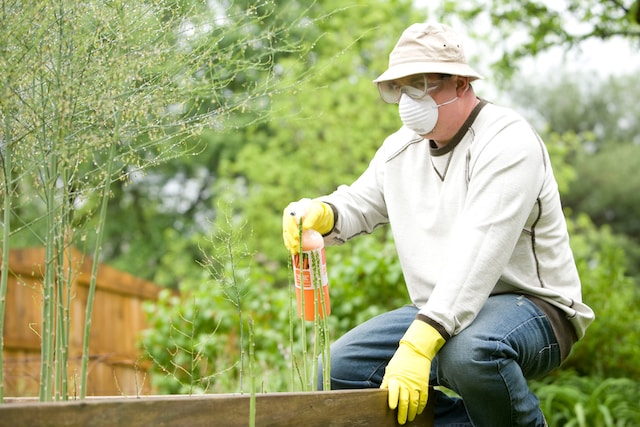Keeping your home free from pests is not only essential for maintaining a clean and healthy living environment but also crucial for preventing potential damage to your property. Unwanted intruders like insects, rodents, and other pests can pose various threats to your well-being and peace of mind. To ensure a pest-free home, it’s important to adopt proactive measures and implement effective strategies. In this article, we’ll explore some comprehensive approaches to help you create a pest-free haven for you and your family.
Seal Entry Points with Precision
One of the most effective ways to keep pests at bay is to identify and seal potential entry points with precision. Pests often find their way into homes through tiny cracks, gaps, or openings in doors, windows, and walls. Conduct a thorough inspection of your home’s exterior, paying close attention to areas where utility lines enter. Use silicone caulk or weather stripping to seal any visible gaps, ensuring a tight barrier against unwanted invaders. Additionally, consider installing door sweeps and repairing damaged screens to prevent insects from entering through doors and windows. By meticulously sealing entry points, you create a formidable defence against pests, minimizing the chances of infestations and the need for reactive pest control measures.
Maintain a Clean and Tidy Living Space
A clean and well-maintained living space is not only pleasing aesthetically but also serves as a powerful deterrent against pests. Regular cleaning routines, proper waste disposal, and good hygiene practices significantly reduce the likelihood of attracting unwanted visitors. Pay particular attention to areas that may accumulate crumbs, spills, and food residue, such as the kitchen and dining areas. Store food items in airtight containers and promptly fix any plumbing leaks to eliminate potential water sources for pests. Vacuuming and sweeping regularly will help remove debris and discourage pests from settling in hidden corners. By adopting these habits, you not only enhance the overall cleanliness of your home but also create an environment that is inhospitable to pests, reducing the risk of infestations.
Utilize Natural Pest Repellents
Incorporating natural pest repellents into your home care routine can provide an eco-friendly and safe alternative to chemical pesticides. Many common household items possess inherent pest-repelling properties. For instance, citrus peels, bay leaves, and cinnamon sticks can deter insects when strategically placed in vulnerable areas. Essential oils like peppermint, lavender, and eucalyptus are known for their ability to repel pests without harmful side effects. Create DIY repellent sprays by mixing these oils with water and applying them to entry points, corners, and other potential hiding spots. By harnessing the power of nature, you not only protect your home from pests but also contribute to a healthier and more sustainable living environment.
Seek Professional Assistance When Needed
While the aforementioned tips can significantly reduce the risk of pest infestations, there are instances where professional intervention becomes necessary. If you find yourself facing a persistent pest problem despite your best efforts, consider seeking the expertise of pest control professionals. Whether you’re looking for pest exterminators in Brantford or any other place, a professional service can conduct a thorough assessment of your home, identify specific pest issues, and implement targeted solutions. Professionals are equipped with the knowledge and tools to handle more severe infestations, ensuring a comprehensive and lasting resolution to your pest problems. Consulting with experts adds an extra layer of protection to your pest management strategy, providing peace of mind and safeguarding the well-being of your home and family. Remember, early intervention can prevent small pest issues from escalating into more significant challenges.
Implement Natural Predators in Your Yard
Creating a pest-resistant environment extends beyond the confines of your home’s interior. To fortify your defences, consider introducing natural predators to your yard. Beneficial insects like ladybugs, spiders, and predatory beetles feed on common pests, acting as a natural deterrent. Birdhouses can attract insect-eating birds like swallows and bluebirds, contributing to a balanced ecosystem. Additionally, maintaining a diverse array of plants can attract beneficial insects and create a habitat that is less appealing to pests. By nurturing a healthy outdoor environment, you not only enhance the overall biodiversity but also establish a natural defence against potential invaders.
Regularly Inspect and Maintain Outdoor Spaces
Pests often find harborage in outdoor spaces, such as gardens, basements, and attics. Conduct regular inspections of these areas to identify and address potential issues promptly. Trim overgrown vegetation near your home, as it can serve as a hiding spot for pests. Ensure that gutters are clear of debris, preventing water accumulation that attracts pests. Regularly inspect and maintain outdoor storage areas, such as sheds and garages, to minimize hiding places for rodents and insects. By extending your pest management efforts to outdoor spaces, you create a more comprehensive defence against pests, reducing the likelihood of infestations and ensuring a well-protected home.
Maintaining a pest-free home requires a multifaceted approach that includes sealing entry points, practising good hygiene, utilizing natural repellents, seeking professional assistance when needed, introducing natural predators, and regularly inspecting outdoor spaces. By adopting these strategies, you not only protect your property from potential damage but also promote a healthier and more sustainable living environment. Remember that pest prevention is an ongoing process that requires consistency and vigilance. Implementing these measures collectively ensures a comprehensive defence against pests, allowing you to enjoy a comfortable and pest-free home for years to come.
